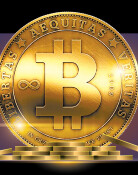UN sanctions without Kim Jong Un’s asset freeze is regrettable
UN sanctions without Kim Jong Un’s asset freeze is regrettable
Posted September. 12, 2017 07:37,
Updated September. 12, 2017 08:01
The United Nations Security Council is set to vote on a resolution that imposes fresh sanctions on North Korea in response to the regime’s sixth nuclear test on Monday afternoon (local time). The draft resolution, which was watered down to win the hearts of China and Russia behind the scenes, limits all the supply and exports of refined oil products to two million barrels (around 240,000 to 300,000 tons) per year and mandates UN member nations to report their export volume. However, the U.S. made concessions from an oil embargo on the North in the original version and decided to freeze oil supply at the current level. While it is the first time that the United Nations put oil supply, the lifeline to the North, on its sanctions list, it is doubtful whether this can make Kim Jong Un give up his nuclear ambitions.
The U.N. passed a resolution to ban the sale and supply of jet fuel that can be used for military purposes in the wake of the North Korean regime’s fourth military test in March 2016. However, it is the first time that crude oil, which is directly related to North Korea’s defense and economy, is put on the sanctions list. As the new resolution includes placing crude oil on the U.N. sanctions list, the level of pressure on the North needs to increase gradually depending on North Korea’s provocations as it was done with a coal embargo.
The crux of the final draft resolution is limiting refined oil products to the North, but it does not seem to be much effective. China supplies 200,000 tons of refined oil including gasoline and 530,000 tons of crude oil to North Korea, which consumes one million tons of oil. The draft resolution even talked about 530,000 tons of crude oil that China supplies through pipes under the Yalu River. As the North imports 200,000 tons of refined oil products from China and 40,000 tons from Russia. Given the supply from China and Russia, the ban on imports is barely effective. It limits only the indirect supply of 200,000 to 300,000 tons of fuel oil from third countries including Singapore.
As China has not released its volume of crude oil export since 2014, there is no accurate data on how much oil is supplied to North Korea. The international community including the U.N. has no way of confirming this. The problem is that there is no option to prove that China violates the U.N. resolution. It should be taken as an opportunity to create a system that can monitor Chinese and Russian assistance to North Korea in a transparent manner.
While a ban on textile exports to the North worth 850 billion won (751 million U.S. dollars) per year was included in the draft resolution as the original one, it is regrettable that a freeze on Kim Jong Un’s assets was excluded. Although it is not easy to find his hidden assets, it could have put a significant psychological pressure on Kim, had he been put on the sanctions list. The final draft resolution includes a ban on North Korean laborers, but it can be effective only when Russia takes actions. The South Korean government should make its best efforts in diplomacy to ensure that the new sanctions can be effective.







